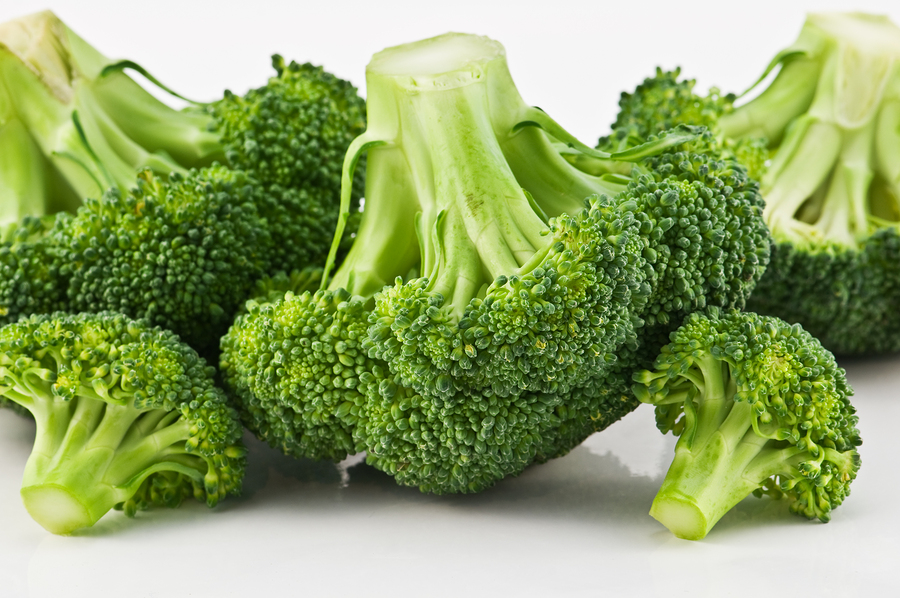Super broccoli helps fight ageing
A superfood broccoli developed by British scientists retunes metabolism to combat the effects of ageing, research has shown.
The vegetable, sold under the brand name Beneforte, contains boosted levels of a plant compound believed to protect against heart disease and cancer.
Scientists who tested it on volunteers saw metabolic changes that were the biological equivalent of a car’s 12,000 mile service.
Tiny energy generators in cells called mitochondria, which become less efficient with age, were given a new lease of life and had their performance improved.
Eating the broccoli helped reverse mitochondrial malfunctions that contribute to problems such as obesity, diabetes, heart disease and some forms of cancer.
Beneforte was created using conventional breeding techniques by crossing conventional broccoli with a wild Italian variety that has naturally high levels of glucoraphanin.
It contains two to three times more of the compound than ordinary broccoli and much higher levels than other “cruciferous” vegetables such as Brussels sprouts, kale and cauliflower.
The findings underlined the health benefits of eating cruciferous vegetables in general, although Beneforte showed the most striking effect, said the team led by Professor Richard Mithen from the Institute of Food Research.
Writing in the American Journal of Clinical Nutrition, the researchers conclude: “A diet rich in cruciferous vegetables effectively retunes our metabolism. In this manner, cruciferous vegetables may be able to reduce the risk of many chronic diseases associated with ageing.”
The scientists recruited 48 volunteers who were split into three groups and ate 400 grams a week of either Beneforte, standard broccoli, or peas for three months.
Blood tests showed clear signs of improved metabolism in the high-glucoraphanin Beneforte group. In particular, two biochemical processes vital to mitochondrial function were “rebalanced”.
People in the Beneforte group also had reduced levels of compounds linked to inflammation in their blood.
A compound called sulphoraphane, which is derived from glucoraphanin, is known to promote antioxidant activity in cells. This has the effect of clearing away destructive oxygen molecules that can disrupt mitochondrial machinery, experts believe.
“Although this is a pilot study, we think it is significant because it shows in humans a measurable effect on our metabolism, which is central to our overall health and could explain the diverse range of beneficial effects many observational dietary studies have shown previously,” said Prof Mithen.
Cholesterol levels were not altered by eating Beneforte, and no effect was seen on blood pressure.
Nutritionist Dr Gail Rees, from the University of Plymouth, said: “This is an exciting study that demonstrates how eating broccoli benefits our metabolism.
“It is of huge scientific interest as we are now starting to unravel exactly which components of fruit and vegetables are responsible for good health and what the specific effects are.
“The study… is particularly important because it shows the advantages of eating regular but reasonable portion sizes of a special type of broccoli high in glucoraphanin. The study also demonstrates that the response to eating this type of broccoli is dependent on genetic makeup, so how beneficial it is to your health varies according to your genetics.”
She added: “We must remember that there are thousands of bioactive components in fruit and vegetables and we need to have a mixture of different types daily… The best advice is to continue to consume at least five portions of different fruit and vegetables per day as part of a healthy diet.”
Fellow expert Catherine Collins, principal dietitian at St George’s Hospital NHS Trust in London, said: “What does this mean for broccoli lovers (or haters?). It adds to the evidence already there that cruciferous vegetables benefit health and possibly reduce the risk of chronic conditions such as cancer or cardiovascular disease.
“Don’t like broccoli, Brussels or cauliflower? Citrus fruits, soy, coffee and garlic have been shown to have similar cell benefits, although the mechanism of action may be different.”
Beneforte was developed at the Institute of Food Research and John Innes Centre, both based in Norwich.
It was launched at Marks & Spencer stores in 2011 and appeared in other supermarkets the following year.
A 240 gram pack of Beneforte costs £1 from Asda.
Latest posts by Sally - Silversurfer's Editor (see all)
- Pocket money memories - March 14, 2025
- Belton Farm Red Fox Mac and Cheese Croquettes - March 11, 2025
- Downsizing & decluttering: A guide to simplifying your life - March 11, 2025
- Make your roof work for you: The smart way to save with solar - March 10, 2025
- Top five Fred. Olsen Cruise Deals - March 10, 2025




















